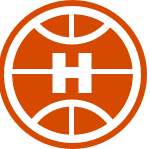Basketball in Asia is exploding with 300 million registered players in China, and recent FIBA World Cup games generated viewers between 50-70 million Chinese viewers for national team games.
With China’s Zhou Qi and Liu Chuanxing both playing for their China in FIBA competition as well as their NBL teams in Australia, there have been more eyes on Aussie hoops from Asia than ever before.
As a result, we’ve seen some of our country’s best players and coaches cajoled away by Asian teams, Brian Goorjian and Jo Lual Aquil, to name two recent examples.
But before a revolving door of basketball talent regularly shifted back and forth across Australasia, there was Zheng Wu .
As a result of basketball pioneers Lindsay and Andrew Gaze regularly touring China with NBL players during the late 1990s, an attempt to try and tap into the growing basketball fanbase in Asia long before others followed suit, the team signed a number of sponsorship deals with Chinese brands. One of those being Golden Star International which paved the way for Melbourne to sign Zheng Wu a star shooting guard for the Chinese national team whose presence on the team was purely economic and hoped to deliver a boost of Chinese fans to their games.
Zheng Wu , 35, who led China to its first-ever top-eight finish at the 1996 Atlanta Olympics by blocking a last-second Argentinian three-point attempt to seal the victory, arrived at the tail-end of his career. Wu, who was well passed his prime and coming off an ACL injury, was considered a marketing ploy that failed after Wu played in a batch of pre-season games (mostly in China) before realising he wasn’t in the shape required to play in the NBL. He then returned to China at the start of the season, having never played in an NBL game.
Although the Zheng Wu experiment didn’t pay off, it led to a number of sponsorship deals between Chinese-based brands and the Melbourne Tigers. A year later, the Chinese company Haier became their main sponsor of the Tigers with an expectation they sign Tang Zhengdong of Jiangsu. Zhengdong also failed to play in an NBL game.
A number of other Chinese players made attempts to play in the NBL. Liu Wei, a former member of the Sacramento Kings, took part in the 2005 NBL All-Star game, scoring 8 points and 3 rebounds. The following season Wei was tipped to appear in an NBL game with Perth, and Chinese teenage stars Guangdong Hongyuan and Liu Xiaoyu were offered spots as training players by the Sydney Kings, but still, none of the Chinese talents took the floor for any NBL team during the 2005/06 season.
Two years later, the Sydney Kings signed another Chinese player, Sun Hefeng, from Dongguan New Century. A talent exchange between the two clubs saw a 16-year-old Hefeng train with the Kings and play in the NSW state league, only to then go on to play college basketball in 2011 and never return to Australia.
The series of failed attempts at opening the door to Chinese talent ended when Bo Liu signed a contract as a fully rostered player with the Sydney Kings in 2016. Shortly after, the Brisbane Bullets followed suit and signed Shanghai basketball talents Wang Tong and Yan Peng to development player deals, a move initiated by Brian Goorjian, who was an assistant coach with Shanghai at the time.
Bo, who had already spent a season as a pro playing in the Chinese Basketball Association, would make his NBL debut on October 8, 2016, becoming the first Chinese player to ever appear in an NBL. Tong would repeat the feat on the 21st of January, three months later.
Bo, who coincidently played as Zhou Qi’s back-up on China’s junior national team, would end the season having played in five games. Tong ended the year with three games on his NBL resume, and the NBL/China pathway went quiet again.
Brian Goorjian brokered another deal, this time with Melbourne United, who would offer a development player spot to Meng Xiangyu in 2017. Xiangyu, a 218cm giant, signed, never saw any court time but was a part of the team’s 2018 championship win. Liu Lian was another Chinese talent who trained with the Wollongong Hawks over this period but never saw NBL action either.
In 2019, another opportunity saw Li Tianrong (Terry Li), who played his junior basketball with the Beijing Shougang Young Eagle Program before accepting a scholarship to the NBA Global Academy based in Canberra. Li caught the attention of NBL scouts after a number of impressive games while playing for the Centre of Excellence team in the state league (SEABL). He was then offered a contract as a developmental player with the New Zealand Breakers but saw only three minutes of game time during his NBL career. Li returned to China and signed with Shanghai Sharks, helping the team win the youth championship, where he was named MVP of the tournament.
Although Zhou Qi and Liu Chuanxing have delivered more Asian attention to NBL basketball than ever before, it was these trailblazing players and the efforts of coaches like Brian Goorjian and Andrew Gaze that have allowed the now robust Australiasia hoops pipeline to exist.
This season we will see Qi and Chuanxing both return to playing in Asia, and the China/NBL connection appears to be on pause once again this season, but for how long.

